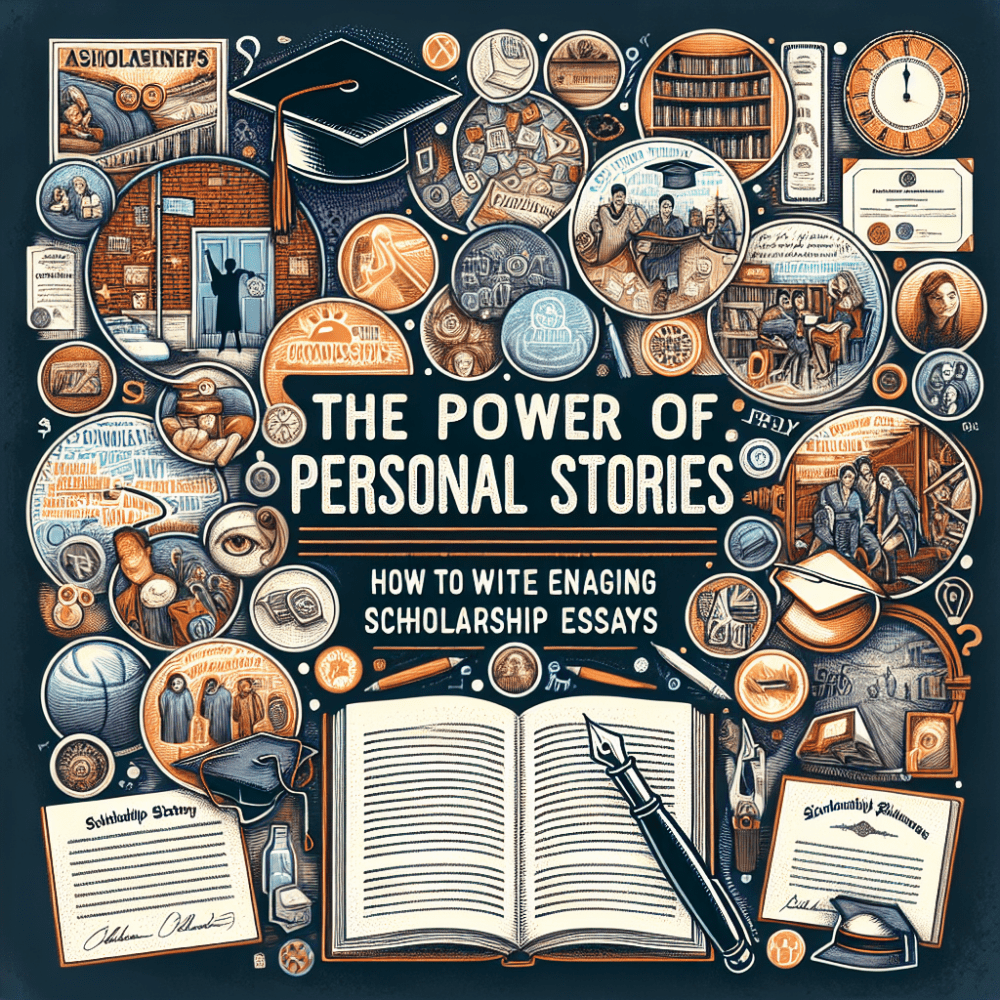
The Power of Personal Stories: How to Write Engaging Scholarship Essays
Introduction:
Scholarship essays play a vital role in securing financial assistance for students pursuing their educational dreams. These essays serve as an opportunity for applicants to showcase their individuality, passion, and academic achievements. Crafting an engaging scholarship essay requires a unique approach that combines personal experiences and storytelling techniques. In this article, we will explore the power of personal stories and provide valuable tips on how to write captivating scholarship essays.
Why are personal stories important in scholarship essays?
Personal stories have the power to captivate readers’ attention and create a strong emotional connection. When writing scholarship essays, it is crucial to stand out from the competition by presenting a compelling narrative that resonates with the selection committee.
1. Personal stories reveal character:
Sharing personal anecdotes and experiences allows scholarship applicants to showcase their unique qualities, values, and strengths. By providing specific examples, applicants can paint a vivid picture of who they are as individuals.
For example, instead of merely stating that they are hardworking and determined, an applicant could share a story about how they overcame significant obstacles to achieve academic success. This kind of personal story brings the applicant’s character to life and helps the reader understand their motivation and perseverance.
2. Personal stories evoke emotions:
Scholarship committees review numerous applications, making it essential for applicants to make a lasting impression. Personal stories have the power to evoke emotions within readers, enabling them to connect with the applicant on a deeper level.
By sharing heartfelt experiences or challenges faced during their educational journey, applicants can generate empathy and compassion from the selection committee members. This emotional connection can significantly influence their decision-making process.
3. Personal stories make an essay memorable:
A scholarship essay that tells an engaging story is more likely to be remembered by the selection committee compared to one filled with generic statements or clichés. By incorporating personal narratives into their writing, applicants can create a lasting impact that sets them apart from other candidates.
Tips for writing engaging scholarship essays:
Now that we understand the importance of personal stories in scholarship essays, here are some useful tips to help you craft an engaging and memorable essay:
1. Start with a captivating introduction:
The first paragraph of your essay should grab the reader’s attention and make them eager to continue reading. Consider using an intriguing hook or sharing a surprising fact related to your educational journey.
2. Be authentic and genuine:
When writing your scholarship essay, it is crucial to be true to yourself. Avoid exaggerations or embellishments as they can undermine your credibility. Be honest about your experiences, accomplishments, and aspirations.
3. Use descriptive language:
Create a vivid picture for the reader by using descriptive language that paints a clear image of your experiences. Engage the reader’s senses by including sights, sounds, smells, tastes, and textures whenever possible.
4. Stay focused on the prompt:
Carefully read and understand the essay prompt provided by the scholarship committee. Ensure that your personal story aligns with the themes or questions outlined in the prompt.
5. Show growth and reflection:
Scholarship committees are interested in applicants who have demonstrated personal growth and reflection through their experiences. Share how certain events or challenges have shaped you as an individual and contributed to your academic journey.
6. Keep it concise and organized:
While personal stories add depth to scholarship essays, be mindful of word limits set by the committee. Ensure that each paragraph contributes meaningfully to your main story without straying off-topic.
7. Proofread and edit:
Before submitting your scholarship essay, make sure to thoroughly proofread it for grammar errors, typos, and clarity of expression. Consider seeking feedback from teachers, mentors, or peers who can provide valuable insights.
Frequently Asked Questions (FAQ):
Q: Can I use humor in my scholarship essay?
A: Yes! Humor can be effective in engaging the reader, but use it sparingly and ensure it is appropriate for the context.
Q: Should I include personal struggles or challenges in my essay?
A: Yes, personal struggles or challenges can be powerful elements of your personal story. However, focus on how you overcame them rather than dwelling on negativity.
Q: Is it necessary to have a compelling ending to my essay?
A: A strong conclusion can leave a lasting impression on the reader. Summarize your main points and reiterate your passion and commitment towards your educational goals.
Q: Can I use creative writing techniques in my scholarship essay?
A: Absolutely! Creative writing techniques such as vivid imagery, dialogue, and narrative structure can make your essay more engaging and memorable.
Conclusion:
In conclusion, crafting an engaging scholarship essay requires the power of personal stories. By sharing authentic experiences, evoking emotions, and making their essays memorable, applicants can significantly increase their chances of securing financial assistance for their educational aspirations. Remember to stay true to yourself, connect with readers through descriptive language, and demonstrate personal growth through reflection. With these tips in mind, you are well-equipped to write an exceptional scholarship essay that stands out from the competition.












